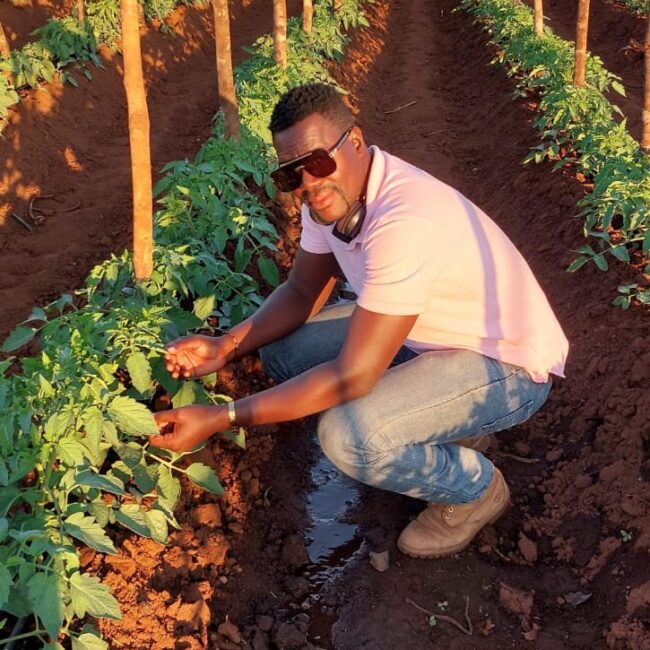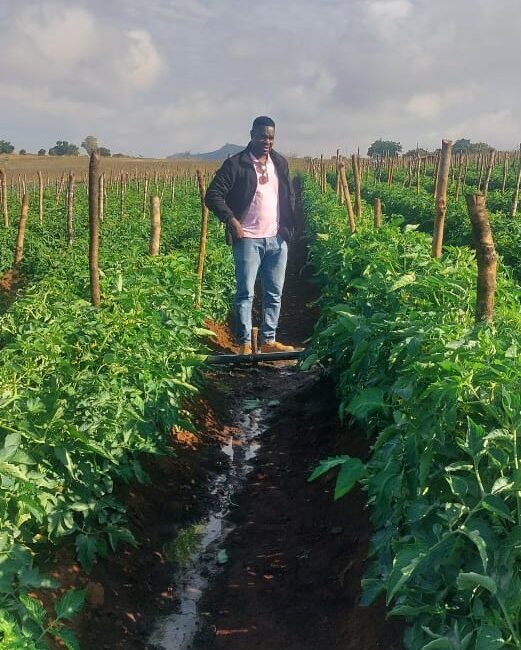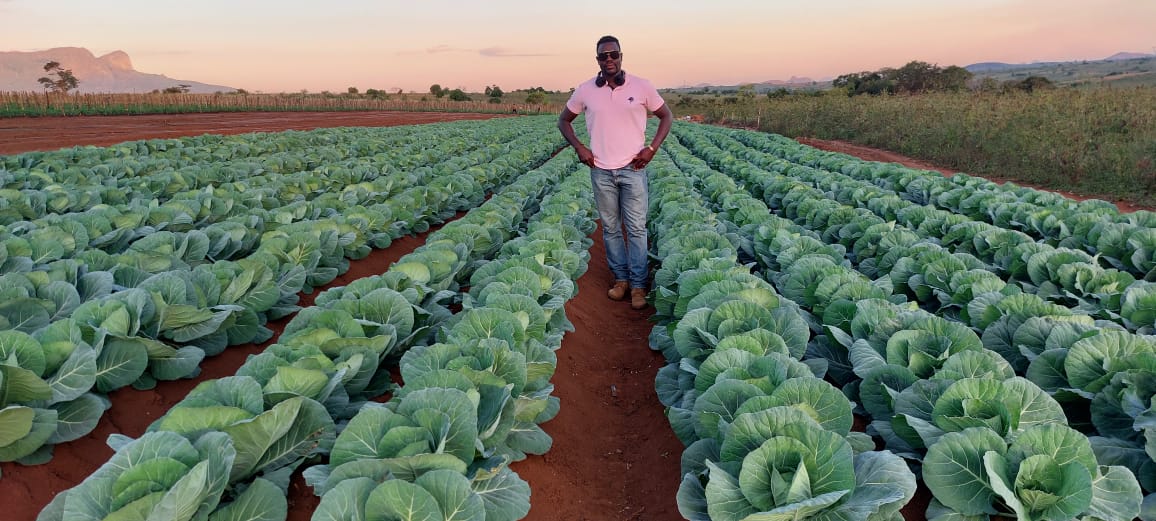In Gurue, Zambezia Province, Mozambique, alumnus Mussafo Manecas Ferraz is leading a quiet agricultural revolution which impacts malnutrition and enhances food security. As the founder and Chief Executive Officer of his own agri- and consultancy business, Ferraz & Filhos Agronegocios. Mussafo uses the knowledge and skills gained through his Australia Awards Scholarship to tackle some of the most pressing challenges facing his country – food insecurity, youth unemployment, and social vulnerability. On completion of his Master of Agriculture Science at the University of Queensland in 2021, Mussafo returned home with a renewed vision.
“I oversee the entire business, including the farm,” Mussafo explains. “From setting goals and planning activities to ensuring resources are available and monitoring execution. It is a full-circle responsibility, but one I am deeply committed to. During my studies, I deepened my understanding of the soil, plant, and water systems. This has allowed me to manipulate key factors in food production and achieve higher productivity than ever before,” he says. “The leadership, agribusiness, marketing, and value chain analysis skills I gained have been crucial in running my business successfully.”
His business is already making a tangible impact in the community, contributing to the development of the country by reducing hunger and poverty in local rural communities. Unlike in the past; vegetables are now available as food all year round. He owns a farm of seven hectares but currently utilise two hectares where he produces about 250 metric tons of tomatoes, 130 metric tons of cabbage and 90 metric tons of potatoes all year round as well as 20 metric tons of maize and five metric tons of beans during the rainy season. The company delivers this produce to eight markets and makes use of staggered production so that not all two hectares are used at once.
Challenges and opportunities
Like many others, Mozambique faces many challenges such as providing food to a growing population; unemployment particularly for youths and woman; and criminal activities and prostitution practices as a way of survival. According to the Food and Agriculture Organization of the United Nations (FAO) over 80 per cent of Mozambique’s population is reliant on agriculture, however the country and farmers face significant challenges due to its high vulnerability to extreme weather events, with cyclical droughts and flooding having occurred over the past ten years. The ongoing conflict in Cabo Delgado displaced large numbers of people and strained limited resources which in return affects farmers’ ability to deliver food to the nation.
Mussafo has successfully leveraged local opportunities in Gurue to build his thriving farming and consultancy business. He capitalised on easy access to land and water for agricultural production, the availability of a large pool of young workers, and the low cost of labour. His approach integrates climate-smart agriculture techniques, including the use of dams and drip irrigation systems, which help conserve up to 60 per cent of water. To manage pests and diseases, Mussafo employs Integrated Pest Management (IPM) strategies such as crop rotation, traps (lures and pheromones), biopesticides, and the cultivation of drought- and pest-resistant crop varieties. Additionally, he prioritises soil conservation through practices like cover cropping and minimum tillage, ensuring long-term sustainability and productivity.
“We have employed 25 young people and 10 women. Their lives – and the lives of their families – have improved significantly. That is why I continue this work,” he shares. In total, over 175 people benefit indirectly from the initiative, with additional casual workers joining during harvest seasons. His work is also supported by a network of collaborators, including fellow alumni.
“I also partner with Teodora Agostinho Kaba, an alumna from Eduardo Mondlane University who helps with pest and disease control and fundraising. Avencio Matenga, a Senior Agribusiness Advisor, assists with business planning and market research,” he notes.
Through the consultancy part of the business, Mussafo trained about 250 farmers as well as 50 Trainers of Trainees (ToT) from the Ministry of Agriculture about climate smart agriculture techniques, farm management, marketing and applied market research, and agriculture insurance.
The local government Agency for the Development of Zambeze Valley (ADVZ) recognised his efforts and collaborated with his company for two consecutive years. The aim of this collaboration was to promote Irish potato production and using him as a model farmer. Partnerships with major agricultural suppliers like Bayer, Syngenta, Stark Ayres, SeedCo, and Avanos further strengthen the project’s foundation.
Mussafo still has contact with his former university supervisor, Lynn Hoffman, and Brock Sutton a grower from Gatton, Australia who assisted him during his thesis research. They helped him with his crop production in Mozambique, specifically with the identification of nutrient deficiencies as part of the fertilisation program.
Looking at the future
Reflecting on his journey, Mussafo emphasises the importance of perseverance. “It takes focus and determination to put one’s Reintegration Action Plan (RAP) into practice. Sometimes I feel things will not work – but that is exactly when I remind myself of the goals I have written and push forward.”
He has big plans to grow the business through the integration of orchards, flowers, and the production of animals for meat and milk. “I foresee a growing demand for these products especially in developing countries due to better incomes and the changing of lifestyles,” he adds.
Through his leadership, Mussafo is not only cultivating crops but also cultivating hope – proving that with the right knowledge, network, and commitment, one person can make a lasting difference.



Connect with us
Any questions?
If you cannot find the answer on our FAQs page, feel free to get in touch by emailing .